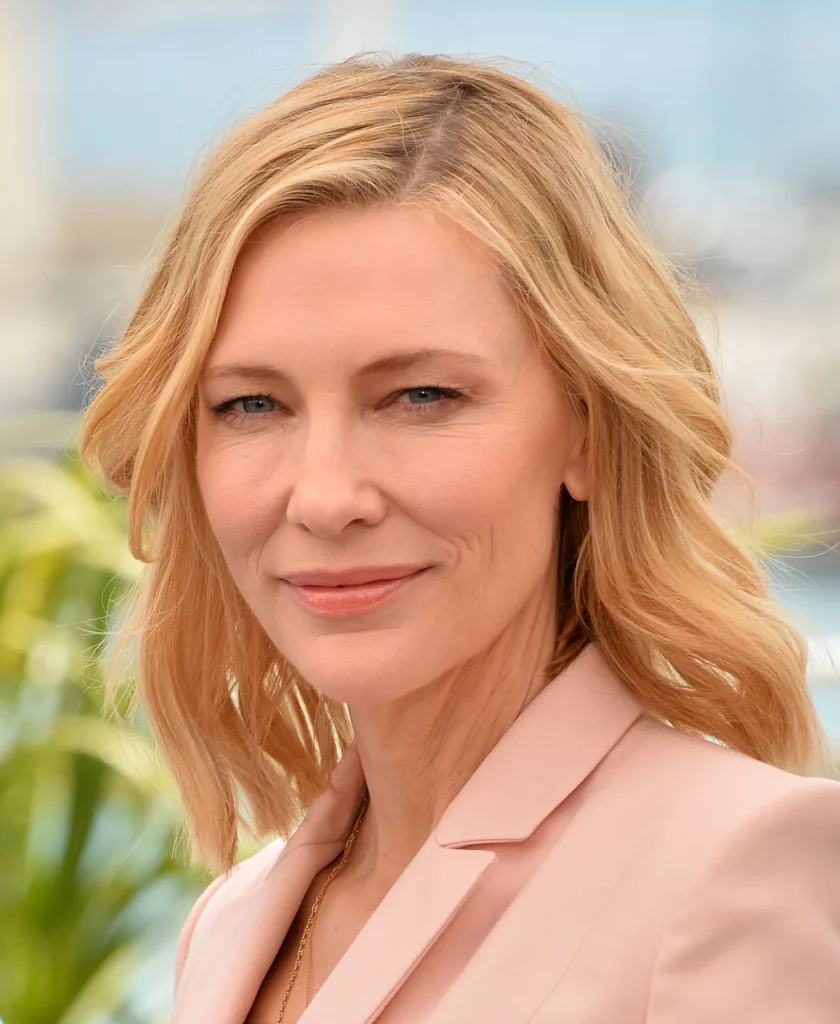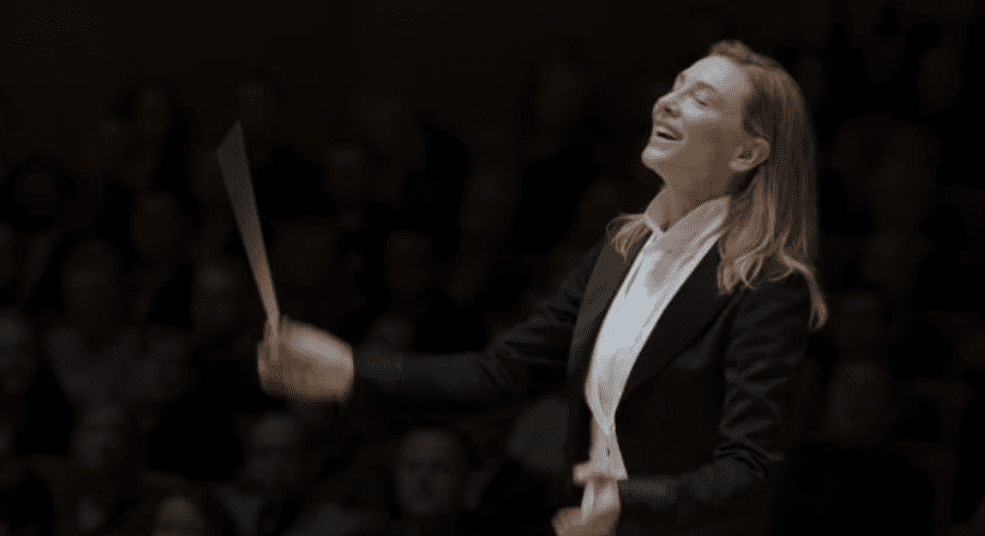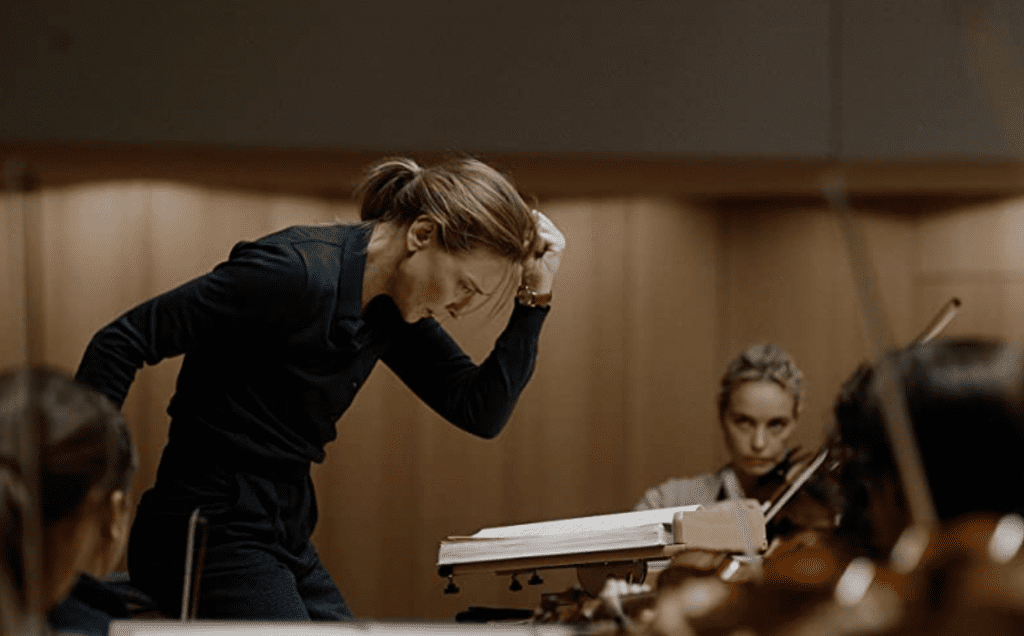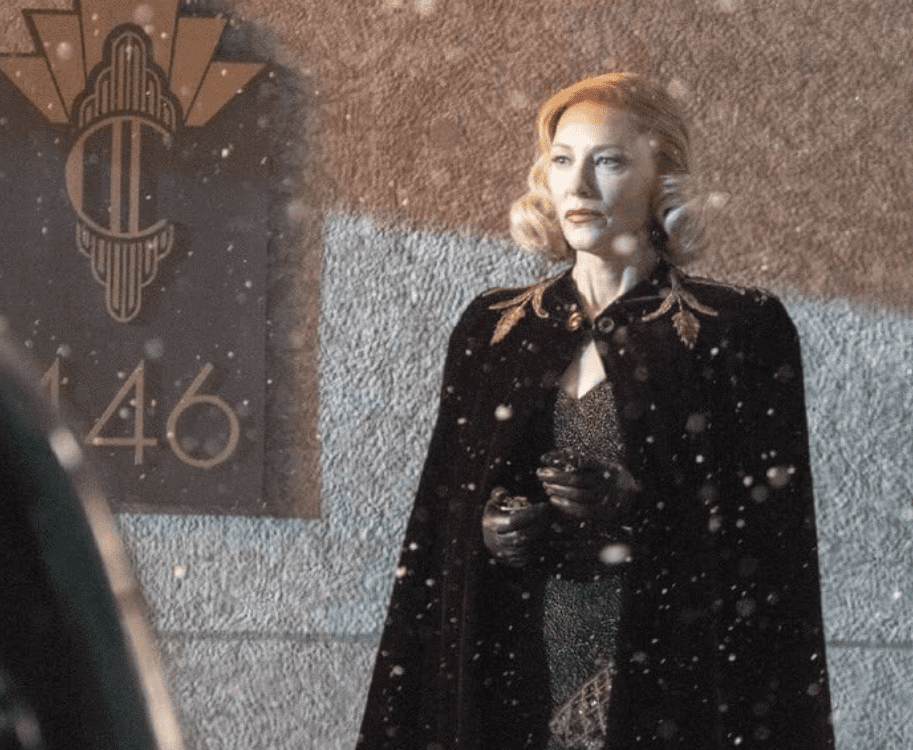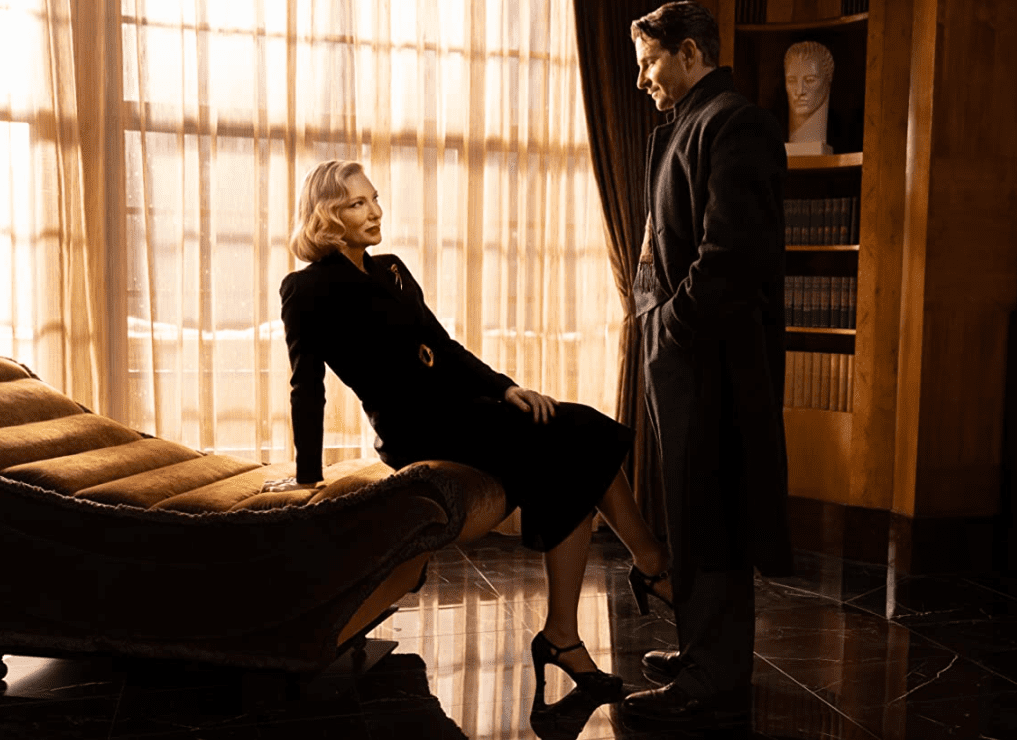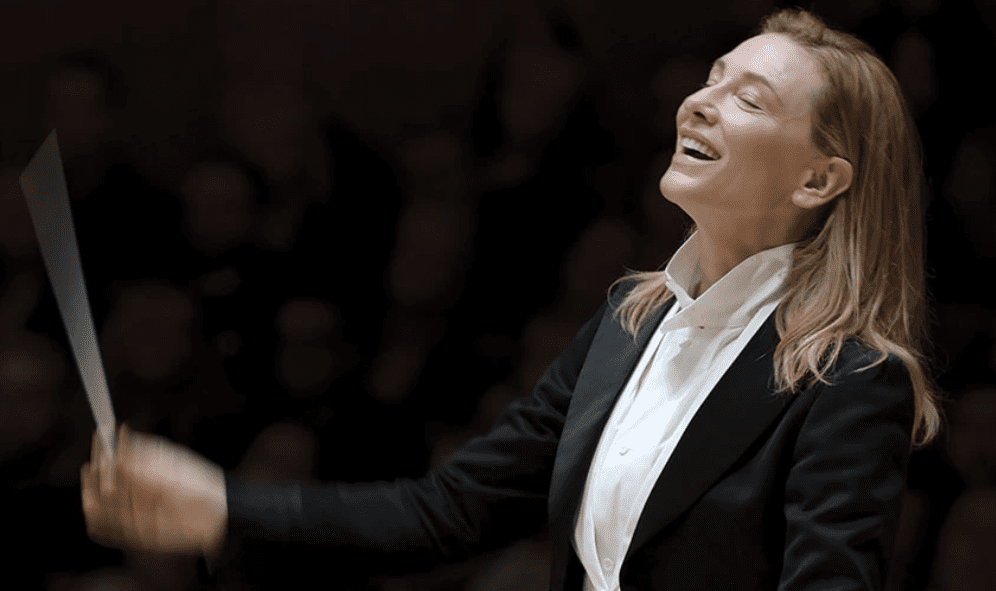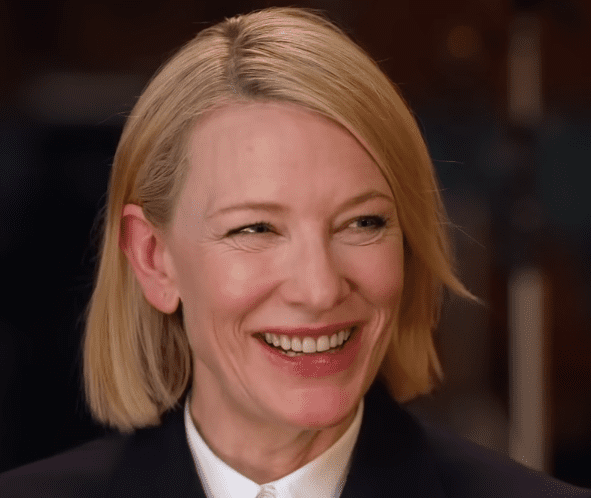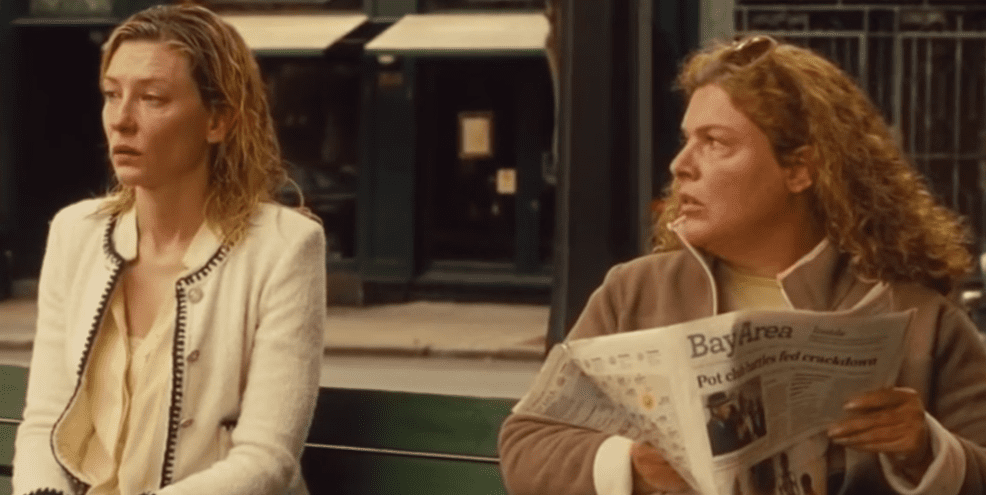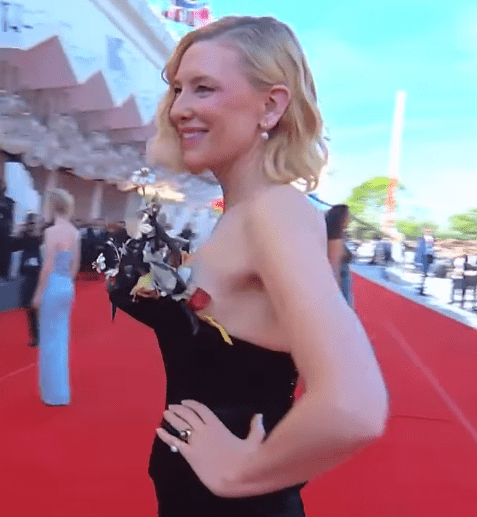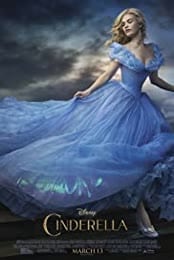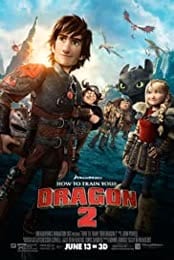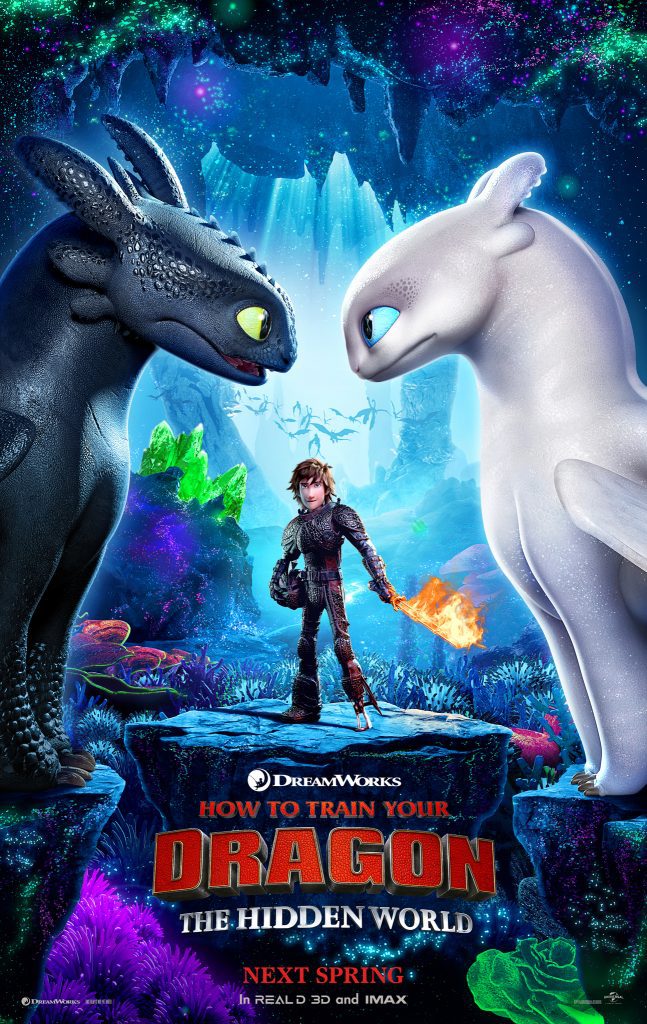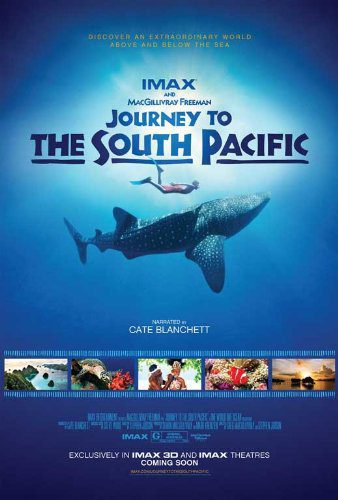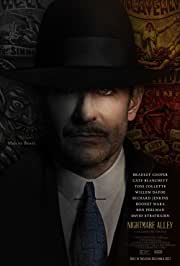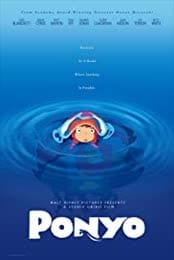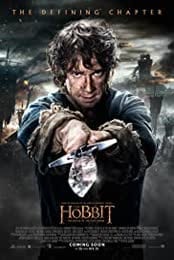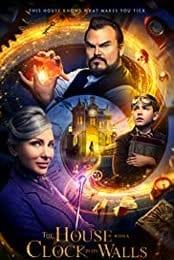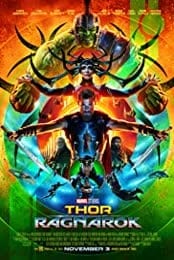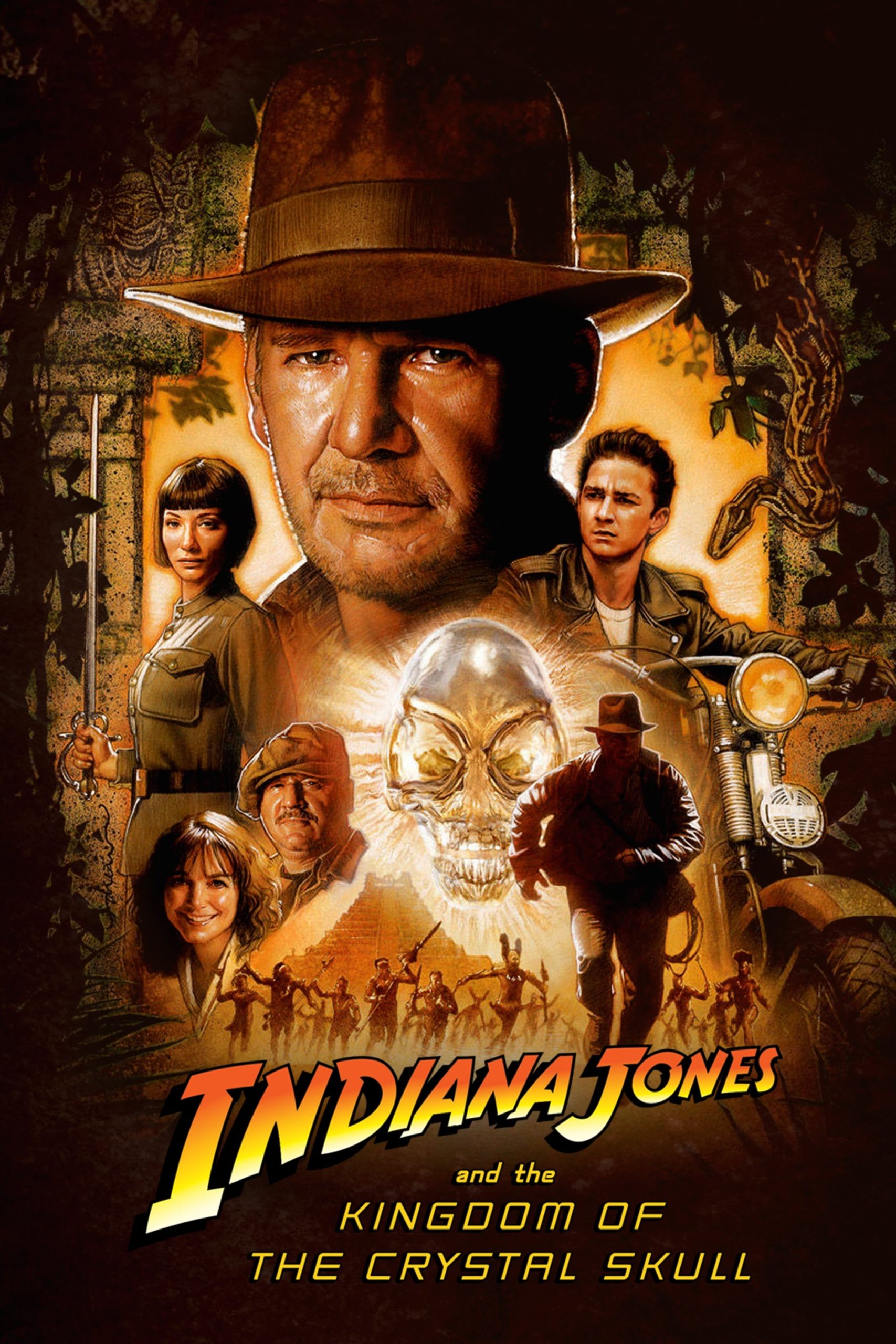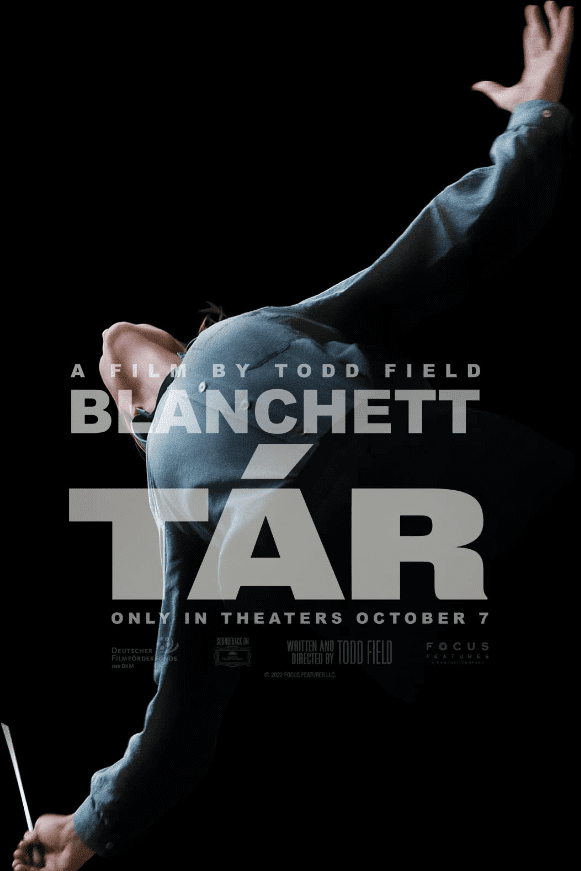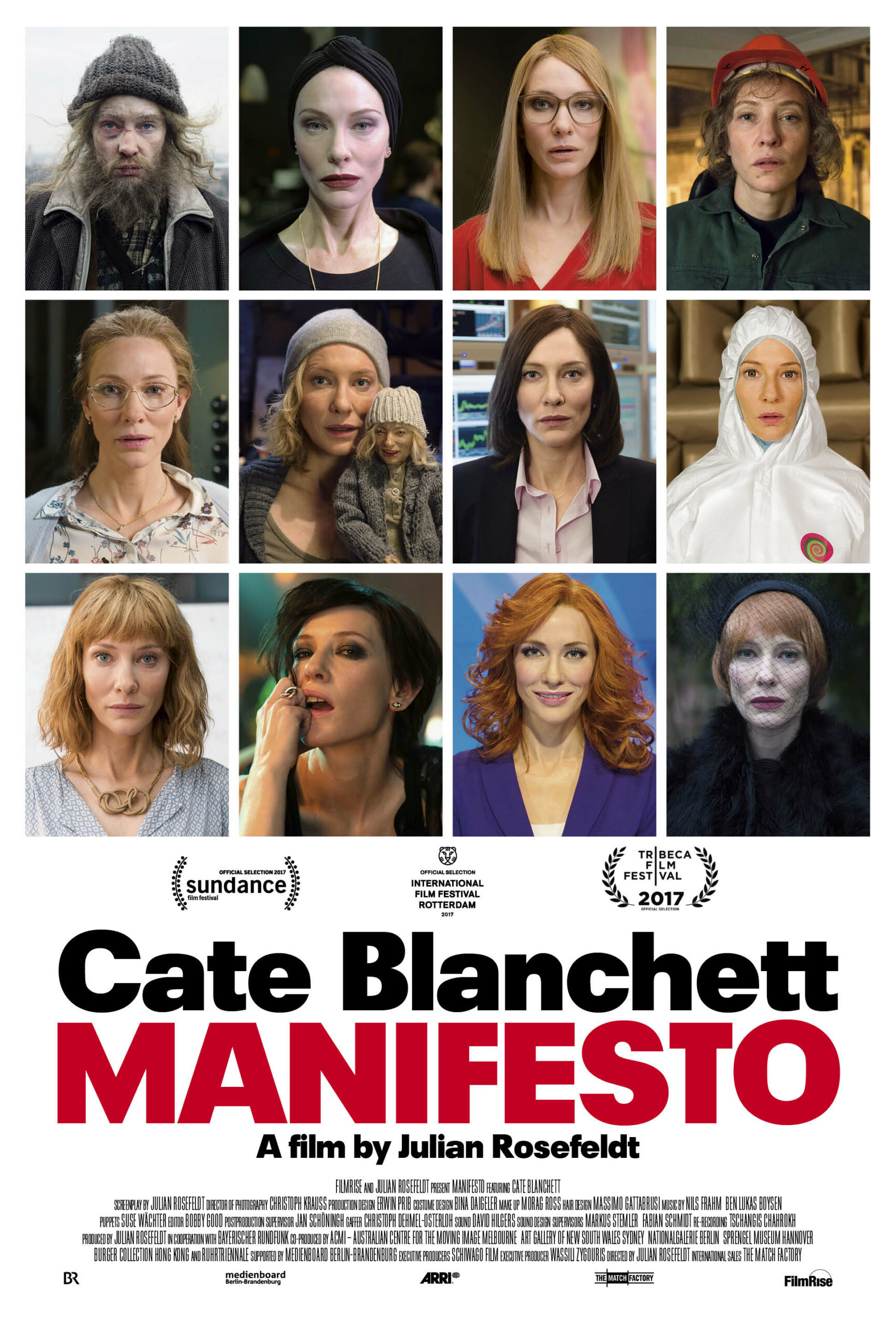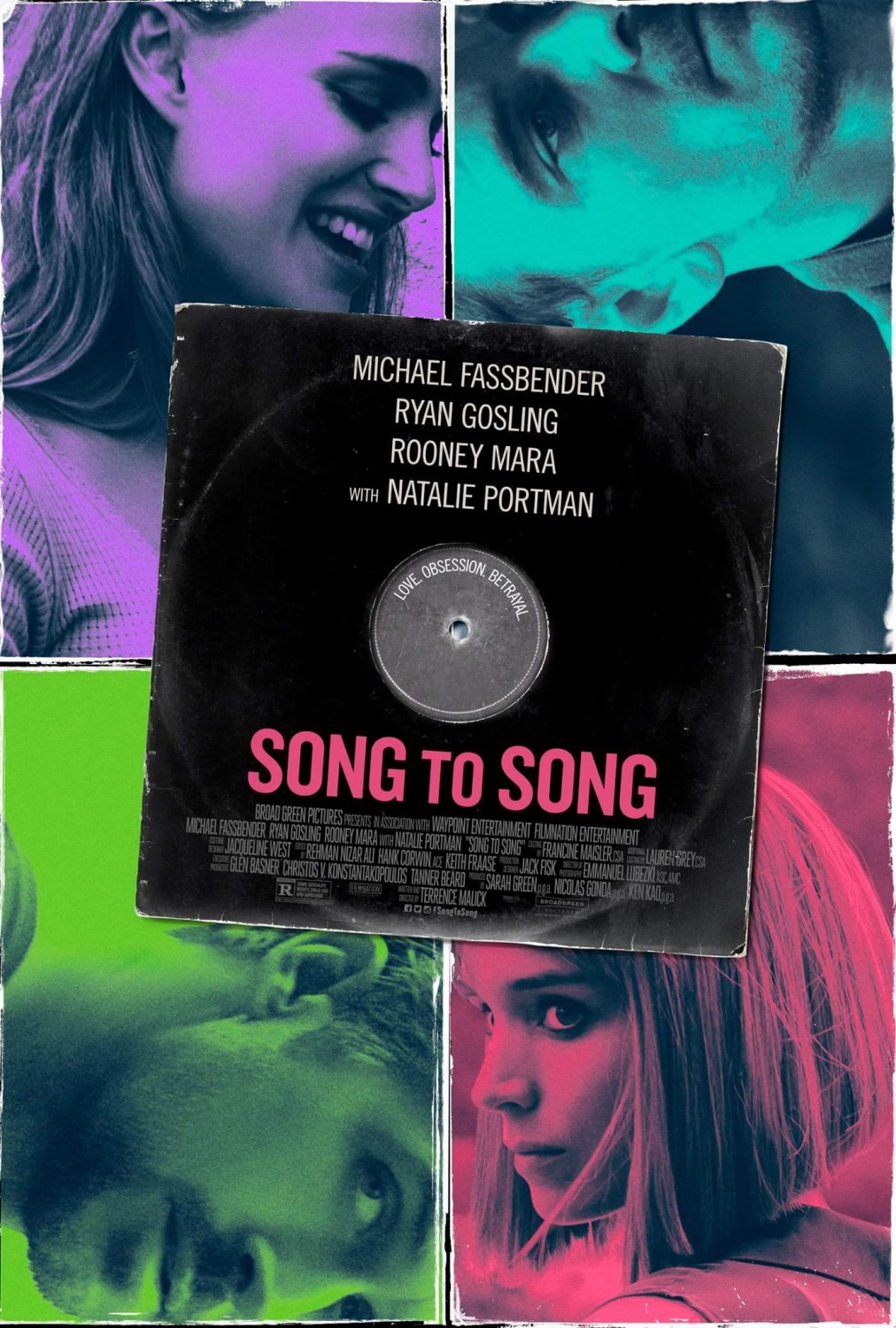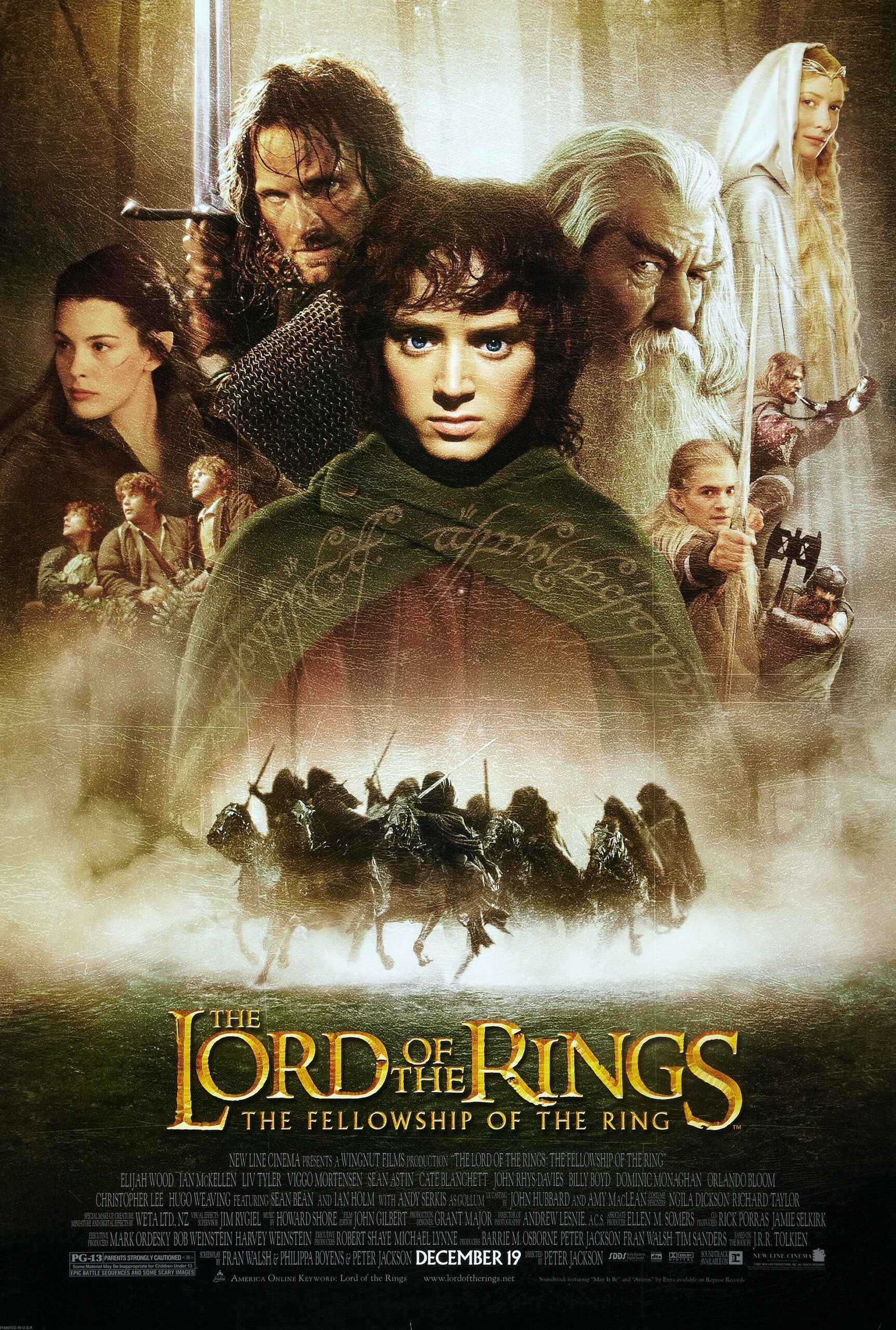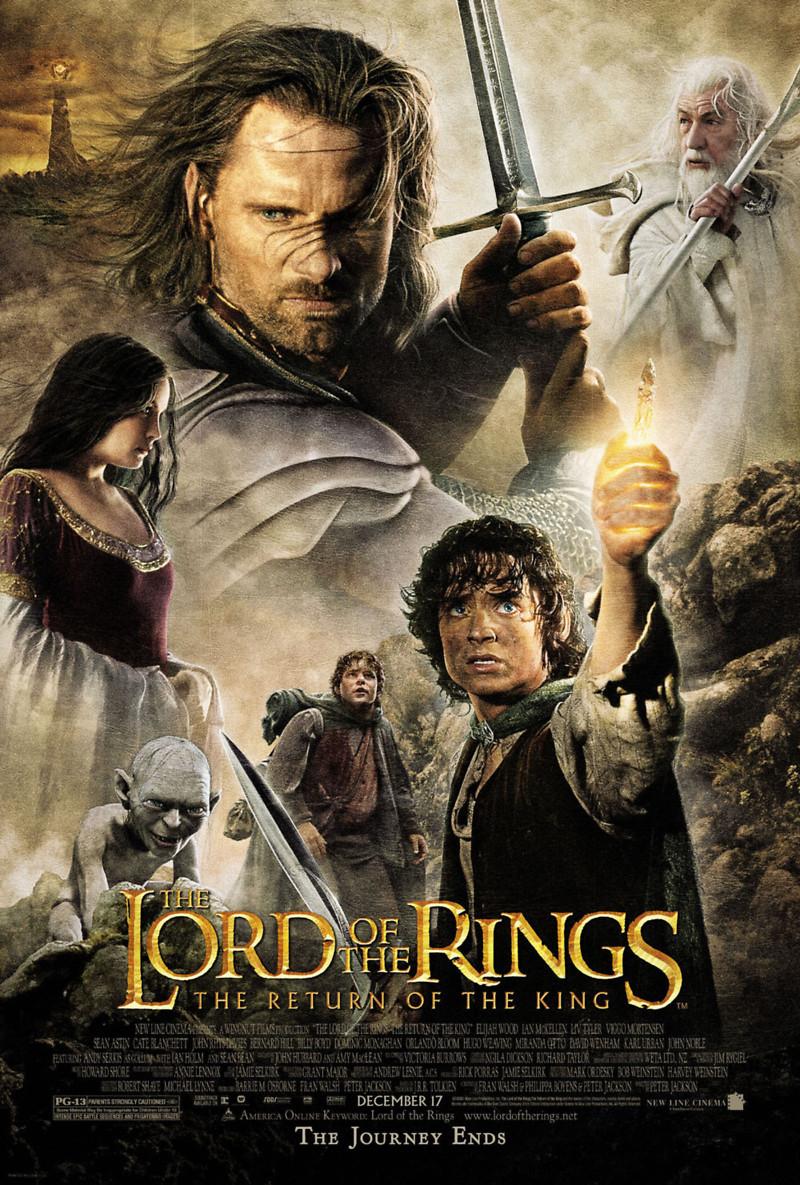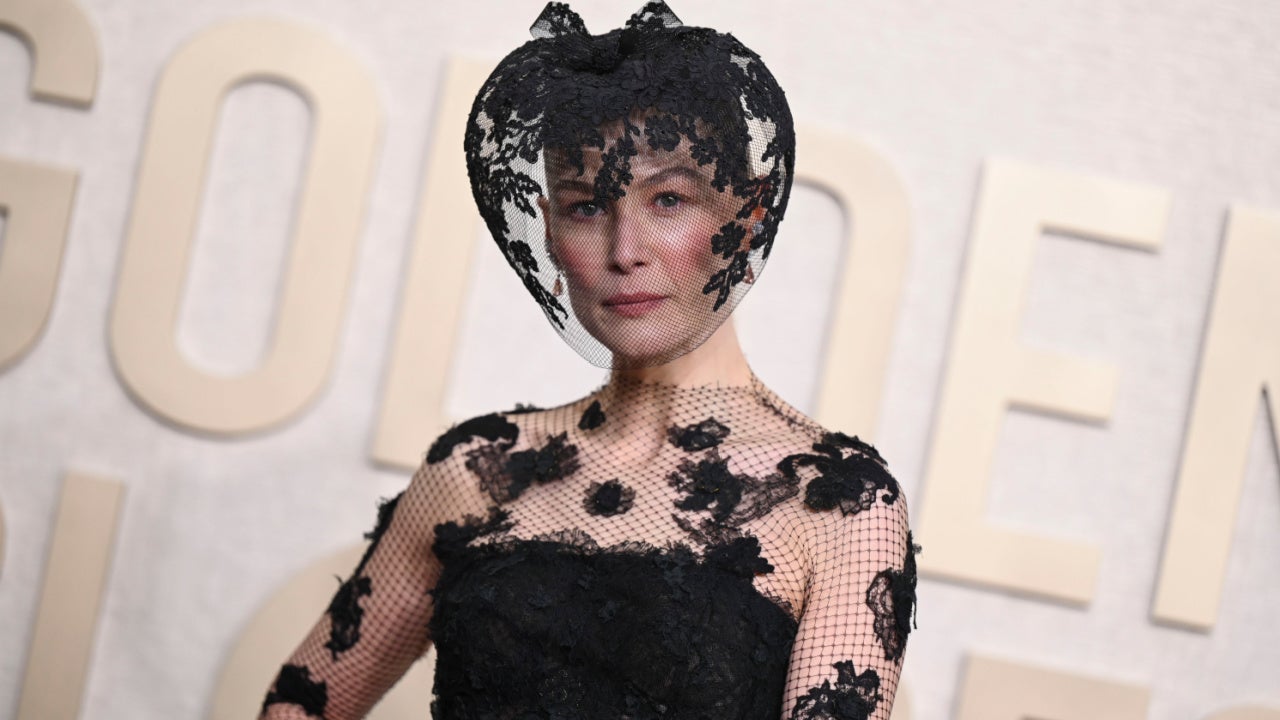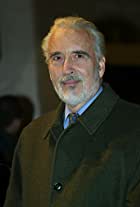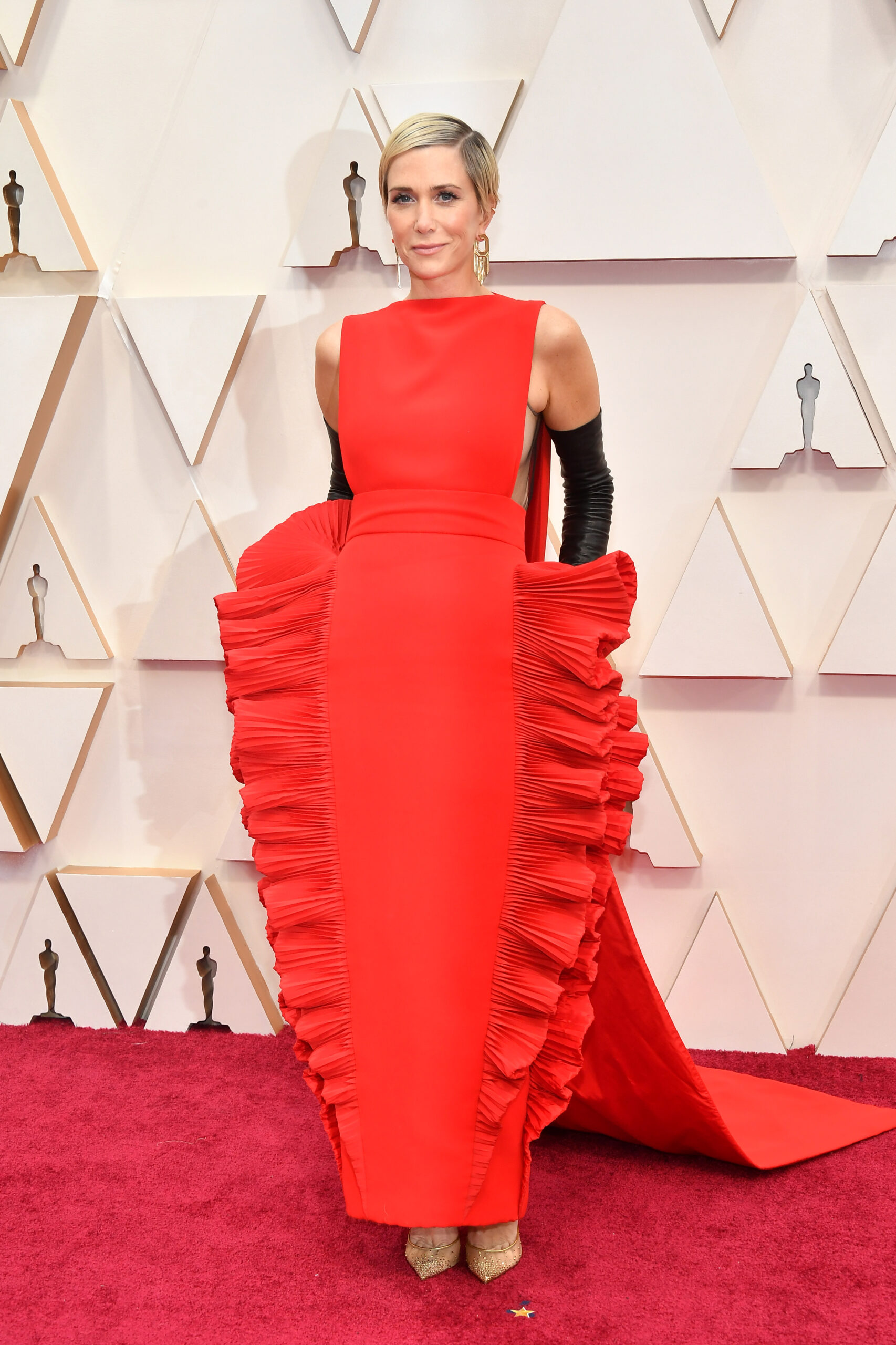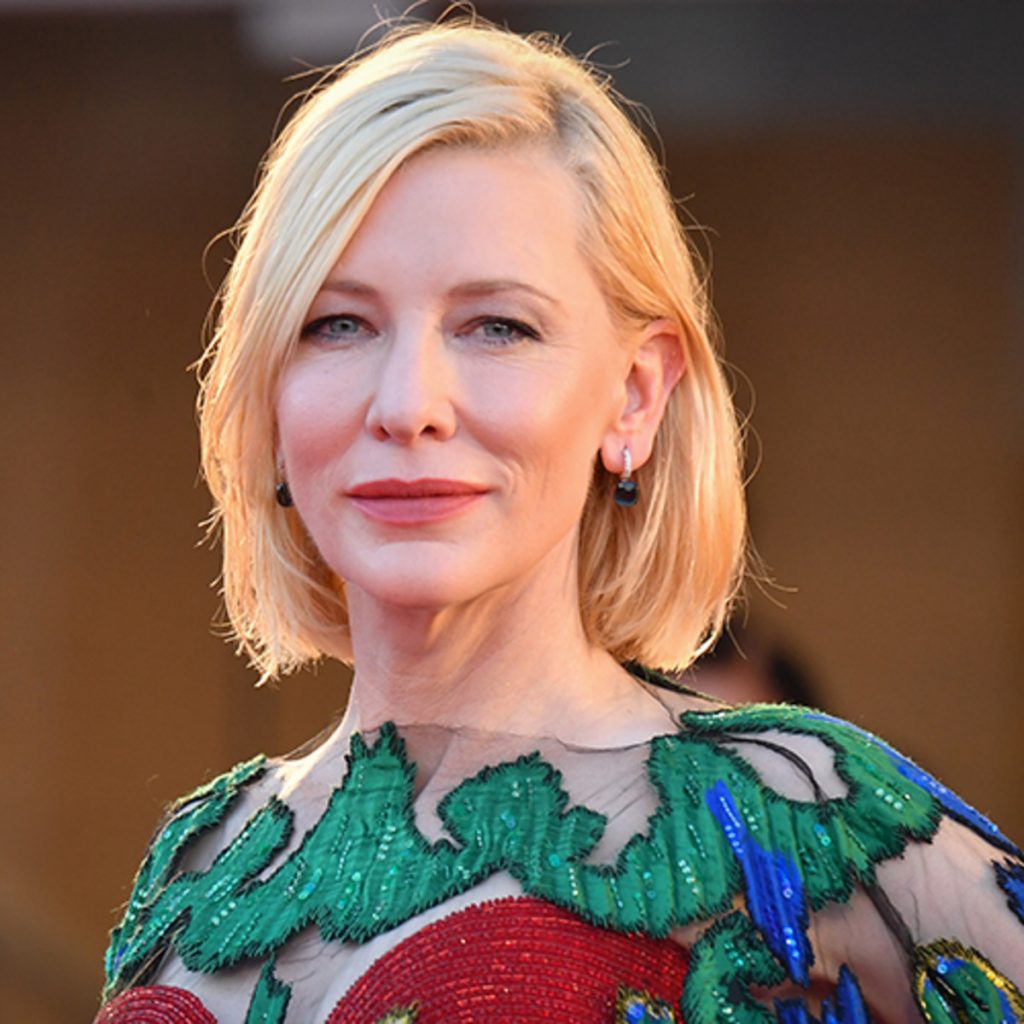
Cate Blanchett
Birthdate – May 14, 1969 (54 Years Old)
Birthplace – Melbourne, Victoria, Australia
Cate Blanchett (birthname: Catherine Elise Blanchett) is in the top ranks of screen actors of her generation, and as a leading figure in the second generation of the wave of Australian cinema, she combines the brilliance of a Judy Davis with the star power of a Nicole Kidman.
Like certain British and Australian film stars (and unlike the vast majority of her American peers), Blanchett has continued to hone her craft on the stage, consistently performing in the theatre from her professional debut in 1992 to the present, and remains a major Australian theatrical figure on stage and as a member of the board of the Sydney Theatre Company, where she served as co-CEO (with playwright husband Andrew Upton) and artistic director from 2008-2012. But it is Blanchett’s extraordinary film work that the world knows, earning her two Oscars (plus four Oscar nominations) and three SAG awards, BAFTA awards, and Golden Globes.
In only her third feature film credit, in Gillian Armstrong’s Oscar and Lucinda (1997), with Ralph Fiennes, Tom Wilkinson, and Ciaran Hinds, Cate Blanchett earned strong reviews was nominated for best actress from the Film Critics Circle of Australia. Her breakthrough performance as Queen Elizabeth I in Shekhar Kapur’s Elizabeth (1998), announced a powerful star with a commanding presence that reminded some of Katherine Hepburn—a notion solidified in 2004 by her Oscar/BAFTA/SAG-winning supporting actor portrayal of the great star in Martin Scorsese’s Howard Hughes drama, The Aviator.
In 1999, Blanchett’s varied roles included co-lead in Mike Newell’s comedy-drama Pushing Tin, with John Cusack, Billy Bob Thornton, and Angelina Jolie; a prime supporting role in Anthony Minghella’s version of Patricia Highsmith’s The Talented Mr. Ripley, with Matt Damon, Gwyneth Paltrow, and Jude Law; and Blanchett even performed (uncredited!) the voice of a “Mysterious Woman” in Stanley Kubrick’s Eyes Wide Shut, with Tom Cruise and Nicole Kidman.
Blanchett quickly established herself as a key player in the realm of quality, auteur-driven English-language cinema, working with directors such as Sally Potter (The Man Who Cried in 2000, with Johnny Depp and Christina Ricci), Lasse Hallstrom (The Shipping News in 2001, with Kevin Spacey and Julianne Moore), Gillian Armstrong (Charlotte Gray in 2001) and Barry Levinson (Bandits in 2001, with Bruce Willis and Billy Bob Thornton), Tom Tykwer (Heaven in 2002, with Giovanni Ribisi), and Jim Jarmusch (his anthology film Coffee and Cigarettes in 2003, in which Blanchett played herself and her fictitious cousin), Wes Anderson (2004’s The Life Aquatic with Steve Zissou, with a large ensemble led by Bill Murray), and Martin Scorsese (2004’s The Aviator, with Leonardo DiCaprio and Kate Beckinsale).
Of course, in 2001, Cate Blanchett’s face became an iconic part of the sprawling universe—as the majestic Galadriel–of Peter Jackson’s mega-blockbuster Lord of the Rings series, including The Fellowship of the Ring (2001), The Two Towers (2002), The Return of the King (2003), with Elijah Wood, Ian McKellan, Liv Tyler, Viggo Mortensen, and Sean Astin. The landmark trilogy grossed a combined worldwide total of nearly $3 billion.
It illustrated that for all of her attachment to first-class, director-driven material, Blanchett also had a knack for commercial Hollywood material, such as Ron Howard’s Western, The Missing (2003), with Tommy Lee Jones and Evan Rachel Wood; Joel Schumacher’s crime thriller, Veronica Guerin (2003); and Steven Spielberg’s Indiana Jones and the Kingdom of the Crystal Skull (2008), with Harrison Ford.
But for the most part, Blanchett has been remarkably successful at working in the relatively rarified waters of adult-oriented cinema, such as Steven Soderbergh’s WW2 drama, The Good German (2006), with George Clooney; the Richard Eyre/Patrick Marber psychological drama, Notes on a Scandal (2006), with Judy Dench and Bill Nighy; Blanchett’s Oscar-nominated revival of her Queen Elizabeth character in Shekhar Kapur’s sequel, Elizabeth: The Golden Age (2007), with Geoffrey Rush, Clive Owen, and Rhys Ifans; another dazzling turn in David Fincher’s acclaimed The Curious Case of Benjamin Button (2008), with Brad Pitt, Tilda Swinton, and Mahershala Ali; and an even more dazzling performance as Bob Dylan in Todd Haynes’ I’m Not There (2007), with Christian Bale, Richard Gere, Heath Ledger, and Julianne Moore.
After a blazing decade in which she became the most interesting female movie actor of her generation, Cate Blanchett was very involved in her work as artistic director of the Sydney Theatre Company, and picking fewer, less time-consuming co-starring or supporting roles in such projects as Ridley Scott’s Robin Hood (2010) with Russell Crowe, Joe Wright’s Hanna (2011) with Saoirse Ronan, and a return to her Galadriel role in Peter Jackson’s box-office smash, The Hobbit: An Unexpected Journey (2012), the start of yet another Jackson-Tolkien trilogy, continuing with The Desolation of Smaug (2013) and The Battle of the Five Armies (2014), with Martin Freeman, Ian McKellan, and Richard Armitage.
Blanchett’s last true lead role was in I’m Not There, but that changed in 2013 with her universally acclaimed performance, earning her only Best Actress Oscar (to date) in Woody Allen’s 2014 comedy-drama, Blue Jasmine. Blanchett played one of the few female roles in George Clooney’s The Monuments Men (2014), with Matt Damon, and performed the voice of Valka in Dean DuBlois’ acclaimed DreamWorks Animation fantasies How to Train Your Dragon 2 (2014) and the sequel, How to Train Your Dragon: The Hidden World (2019), marking the third series in which Blanchett played a continuing character.
Cate Blanchett joined writer-director Terrence Malick for his narrative Knight of Cups (2015), with Christian Bale and Natalie Portman, and then as the narrator of his cosmic non-fiction piece, Voyage of Time (2016), and then back to narrative with Malick’s Song to Song (2017), with Michael Fassbender, Ryan Gosling, and Portman. Blanchett played in her first Disney movie as Cinderella’s Stepmother in Kenneth Branagh’s Cinderella (2015), with Lily James, followed by her second, acclaimed film with director Haynes, Carol (2015), with Rooney Mara; and the newspaper drama, Truth (2015), with Robert Redford and Elisabeth Moss.
In one of Cate Blanchett’s most adventurous projects, she enacted twelve different characters delivering political and artistic statements of principle in artist-filmmaker Julian Rosefeldt’s Manifesto (2015), marking her once again as a tour-de-force, theatre-trained performer. Blanchett trained in the Brazilian martial art of capoeira for her role as Hela in Marvel’s Thor: Ragnarok (2017), directed by Taika Waititi and starring Chris Hemsworth and Tom Hiddleston, grossing $854 million worldwide.
Blanchett joined another successful franchise—with an all-female twist—in Steven Soderbergh’s Ocean’s 8 (2018), with Sandra Bullock and Anne Hathaway, followed by an uncharacteristic family movie for Universal, The House with a Clock in Its Walls (2018) based on John Bellairs’ fantasy novel and co-starring Jack Black, and grossing $131 million globally.
Blanchett partnered with Richard Linklater for an interesting lead performance in the quirky but commercially disappointing Where’d You Go, Bernadette? (2019), and though absent in 2020, returned in 2021 with a flashy satirical performance as a TV news anchor in Adam McKay’s dark comedy, Don’t Look Up, with Leonardo DiCaprio and Jennifer Lawrence, and then a decidedly noir-ish turn in Guillermo del Toro’s Nightmare Alley, with Bradley Cooper, Toni Collette, and Rooney Mara.
Shifting from ensemble work, Cate Blanchett starred as the title character in writer-director Todd Field’s highly anticipated music drama premiering at the Venice Film Festival, Tár (2022), while doing voice work for Robert Zemeckis’ live-action version of Pinocchio (2022), starring Tom Hanks; serving as narrator for Paul Feig’s fantasy released by Netflix, The School for Good and Evil (2022); and working in the genre with Eli Roth’s sci-fi comedy, Borderlands (2022), with Kevin Hart and Jack Black.
For the first time, Blanchett worked with the great Spanish filmmaker Pedro Almodovar on his adaptation of Lucia Berlin’s short story, A Manual for Cleaning Women (2023), and returned to Australia to collaborate with the fine writer-director Warwick Thornton on the drama, The New Boy (date to be announced).
Personal Details
Melbourne-born Cate Blanchett was raised by mother June and father Robert Blanchett Jr., who first met when Robert—as a Naval officer—had to stay in Melbourne because his ship broke down. Blanchett is the middle child of three, with younger sister Genevieve and older brother Bob. Blanchett’s father Robert died of a heart attack when she was ten; June then raised her children on her own.
Blanchett attended Ivanhoe East Primary School, Ivanhoe Girls’ Grammar School, and then Methodist Ladies’ College in Melbourne. She attended the University of Melbourne for one year and then dropped out to travel the world. During that trip, Blanchett had her first screen role as an extra in an Egyptian movie with a boxing setting, titled Kaboria (1990).
After her world journey, Blanchett attended and graduated from Australia’s National Institute of Dramatic Art with a BFA. Blanchett has been married to playwright/director Andrew Upton since 1997; the couple has four children, Dashiell, Roman, Ignatius, and daughter Edith. Blanchett’s height is 5’ 8½”. Her net worth is $95 million,* and she was ranked as recently as 2018 as one of the world’s highest-paid female actors.
Filmography
Some Facts About Cate Blanchett
Broadway Debut: For all of her long and impressive work in theatre, Cate Blanchett made her Broadway debut only in 2017 in the transfer of Sydney Theatre Company’s production of Chekhov’s Platonov, which earned her Tony, Drama Desk and Drama League award nominations.
Beauty: In 2004, a distinguished panel of beauty and fashion editors, Blanchett was ranked as the third most naturally beautiful of all time, after Audrey Hepburn and Liv Tyler.
Stamped Honor: Cate Blanchett was depicted in a series of “Australian Legends” commemorative stamps
Immortalized: Blanchett has been immortalized with her own statue in Madame Tussauds Hollywood gallery.
Environmentalist: Cate Blanchett has been a prominent activist for the environment and climate change awareness, including serving as the ambassador for the Australian Conservation Foundation, a patron of the development charity SolarAid, creating a sustainable market for solar in Africa, and producing the “Climate of Change” podcast.
Refugee activist: Blanchett has served as Goodwill Ambassador for the U.N. High Commissioner for Refugees, and worked with the organization in Syria, Lebanon, and Jordan.
Awards
Winner, Best Supporting Actress/Best Actor, Academy Awards (2005, 2014); Two-time Nominee, Best Limited Series (as producer)/Best Actress in Limited Series-Movie, Emmy Awards (2020); Three-time Winner, Best Actress/Best Supporting Actress, BAFTA Awards (1999, 2005, 2014); Winner, Stanley Kubrick Britannia Award for Excellence in Film, BAFTA Awards (2018); Winner, Fellowship, British Film Institute (2015); Winner, Honorary César, César Awards (2022); Three-time Winner, Robert Altman Award/Best Supporting Female/Best Female Lead, Independent Spirit Awards (2008, 2014); Three-time Winner, Best Actress/Best Supporting Actress, Golden Globe Awards (1999, 2008, 2014); Winner, International Goya, Goya Awards (2022); Winner, Best Actress, Los Angeles Film Critics Association Awards (2013); Winner, Museum of Modern Art Benefit Honoree (2015); Two-time Winner, Best Supporting Actress/Best Ensemble, National Board of Review Awards (2001, 2003); Two-time Winner, Best Supporting Actress/Best Actress, National Society of Film Critics Awards (2008, 2014); Winner, Best Actress, New York Film Critics Circle Awards (2007, 2013); Winner, Gala Tribute Award, New York Film Festival (2013); Winner, Best Motion Picture Cast/Best Supporting Female Actor/Best Female Actor, Screen Actors Guild (2004, 2005, 2014); Winner, Best Actress Volpi Cup, Venice Film Festival 2007). Recipient: Centenary (Federation of Australia) Medal (2001); Chevalier of the Order of Arts and Letters (France) (2012); Companion of the Order of Australia (2017); Hollywood Star Walk of Fame (2008).

